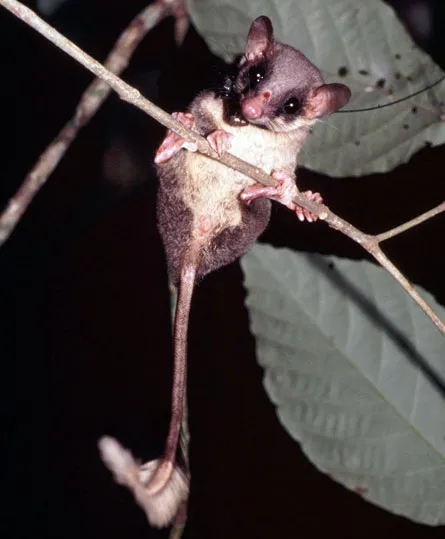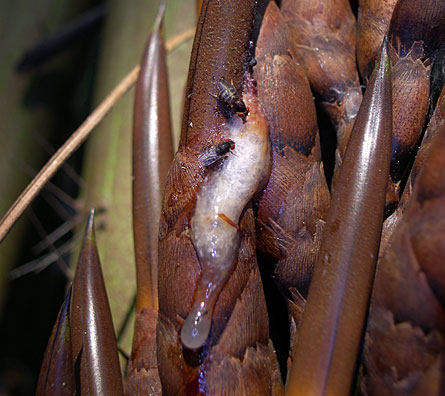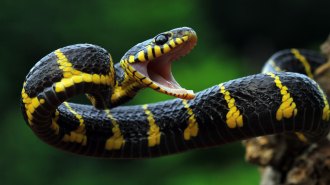Out boozing for several hours every night — that would be drinking like a tree shrew. Except the tree shrews can scurry a straight line afterward.


The pentailed tree shrews (Ptilocercus lowii) of Malaysia average more than two hours each night sipping palm nectar that has naturally fermented, report Frank Wiens of the University of Bayreuth in Germany and his colleagues in the July 29 Proceedings of the National Academy of Sciences.
“This is the first recorded case of chronic alcohol consumption by a wild mammal,” Wiens says.
If tree shrews’ metabolism worked like humans’, they would reach or exceed the legal European driving limit of 0.05 percent blood alcohol content every third night,” Wiens says. Licking this much fermented nectar would put them in about the same condition as a European woman drinking nine small glasses of wine over the course of 12 hours.
But tree shrews may not have the same metabolism as humans when it comes to detoxifying alcohol. Tree shrews and the palms both belong to ancient lineages, so the animals could have evolved an efficient detoxifying pathway, Wiens suggests.
Telling whether another animal is feeling slap-happy has its challenges. But in the wild, the tippling tree shrews didn’t wobble, lose their grip or show other obvious signs of inebriation, the researchers report.
The study grew out of fieldwork tracking the tree shrews in the dense growth of spiny palms. Starting in 1996, Wiens and his colleagues followed the tree shrews on their nightly palm crawls and tested hair samples for alcohol metabolites typical of chronic drinking. The researchers also measured palm fermentation and combined the results in a mathematical model to predict the shrews’ probable alcohol intake.
Bertam palms (Eugeissona tristis) don’t observe a strict season, so at any given time plants will be flowering somewhere in the forest. The stemless palms send up a tall spike with more than 1,000 flowers, some with just male sexual organs and the others hermaphroditic. For weeks before a particular sexual phase, the flower buds dribble nectar. Yeasts inside the buds typically raise the nectar’s alcohol content mildly, to around 0.06 percent, but can punch it up to as high as 3.8 percent.
“This is an astonishing story,” says John Dransfield, a palm specialist at the Royal Botanic Gardens, Kew in Richmond, England. He says he doesn’t know of another palm offering such a beer bash, but perhaps the other species secreting abundant nectar just haven’t been studied yet.
Tree shrews, not ground-burrowing shrews but pointy-nosed tree-climbers with tails, are close cousins to primates. The tree shrew lineage could be the second-closest living relatives to primates (after a group called flying lemurs or colugos).







